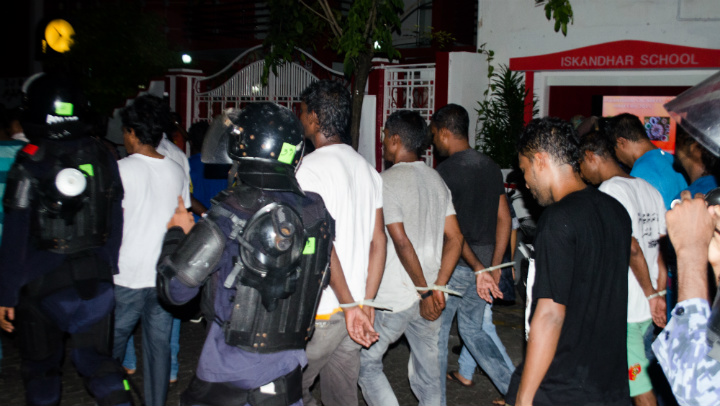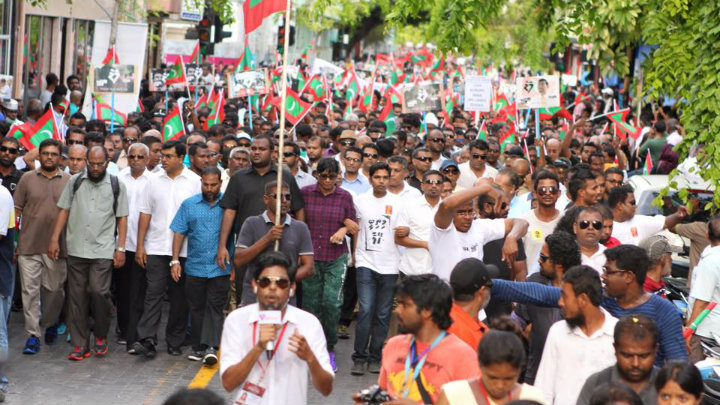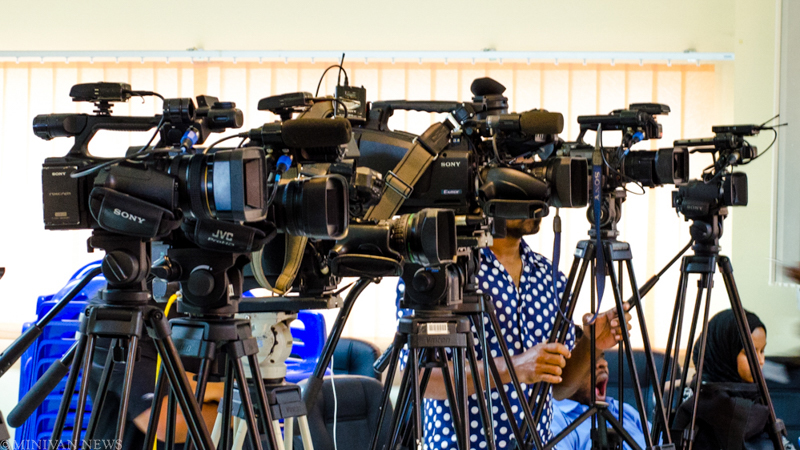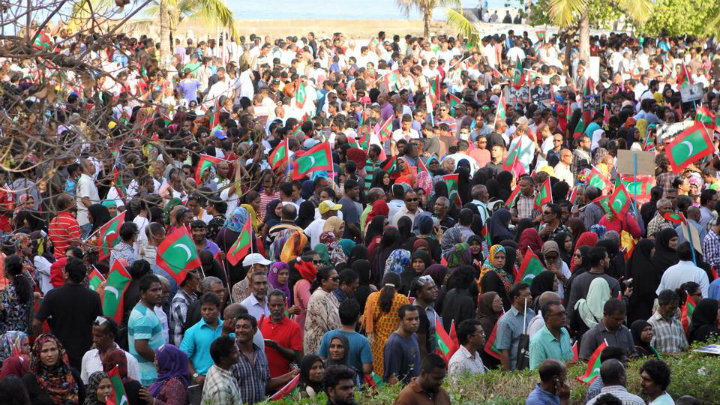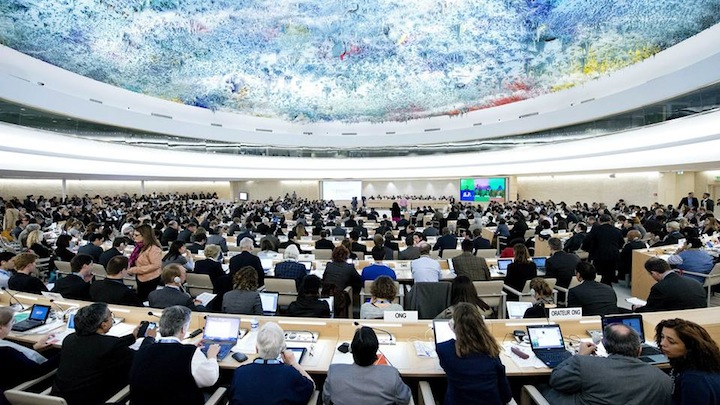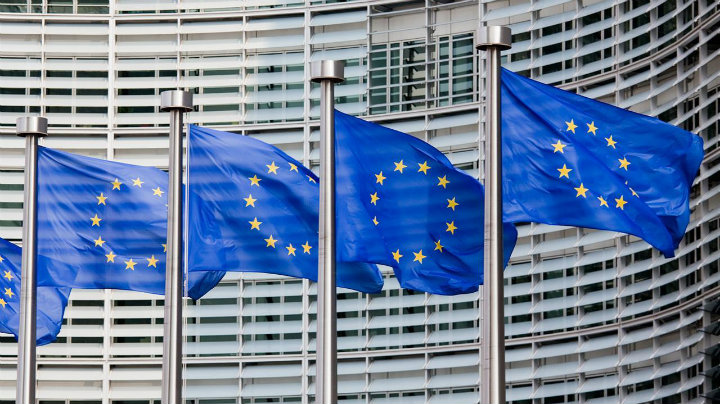Lawyers have accused the police of restricting access to protesters arrested from Friday’s anti-government demonstration, and raised concern over packed conditions at the detention center as well as the arrest of pregnant women, senior citizens and nursing mothers.
The main opposition party’s legal team is planning to appeal the 15 day remand detention of over 170 protesters arrested after a crackdown on the 20,000-strong protest.
“Sick people and mothers of infants should be given lighter punishments. These people are not yet convicted they are only under the suspicion of a crime,” said lawyer Fareesha Abdulla at a press conference this afternoon.
The 195 arrests made on Friday was the highest number from a single protest in the past decade.
The criminal court had granted a blanket 15-day extension of detention for 175 protesters, while 19 were released after police failed to present them at court in the 24 hours required by law.
In addition to restricting access, lawyers accused police of holding detainees in overcrowded cells with no ventilation and failing to provide medication at prescribed times.
Amnesty International’s Abbas Faiz says the human rights organization is investigating reports of failure to provide medication to a pregnant woman.
Disturbing reports of some 200 Maldives May Day protest detainees, some denied their medicine incl a pregnant woman. Amnesty investigating
— Abbas Faiz (@tweetafaiz) May 6, 2015
About 12 lawyers visiting the Dhoonidhoo detention centre were kept waiting for hours and were only able to meet about four or five detainees a day before having to leave at sundown, lawyers said.
“The way police have made arrangements there we have faced a number of difficulties in meeting our clients,” said Fareesha.
Lawyers also said police had initially refused to provide a list of detainees and said the legal team gathered details based on calls to the opposition Maldivian Democratic Party’s (MDP) hotline and by waiting at the criminal court for remand hearings.
Fareesha Abdulla said only one police officer handles paperwork at the Atholhuvehi custodial centre, who had to process forms from lawyers from over 170 detainees.
The police media official today dismissed the opposition’s allegations as “baldfaced lies,” insisting that cells at the Dhoonidhoo detention centre are up to standards.
MDP vice president Mohamed Shifaz meanwhile said the detainees included a number of bystanders, including a pizza delivery man, people out shopping, and students on their way to classes.
Shifaz said police were calling families of detainees and saying they did not have lawyers, while MDP women’s wing president Shifa Mohamed claimed police had offered to arrange lawyers for MVR3,000.
The police media official said families were contacted, but denied the claims of seeking money.
“No police officer would do that, we do not do business transactions here. Maybe that is something they do,” the official said.
Lawyer Abdulla Haseen meanwhile noted that the detainees were accused of “confronting police, throwing rocks and bottles, assaulting and harming police, and damaging police vehicles.”
Police had argued at the remand hearings that the detainees posed a danger to society if they were to be released from police custody.
Others were accused of not leaving the protest area despite orders by riot police, Haseen added.
The penalty for “obstructing police duty” for a first time offender was a MVR3,000 fine, Haseen said, adding that 90 percent of the detainees do not have criminal records.
The May Day detainees were treated with unprecedented “harshness” by police and the criminal court, he said, adding that the police had failed to hand over clothing and personal items provided by families of detainees.
Some detainees were still wearing the same clothes from Friday, lawyers said.
 (0)Dislikes
(0)Dislikes (0)
(0)
